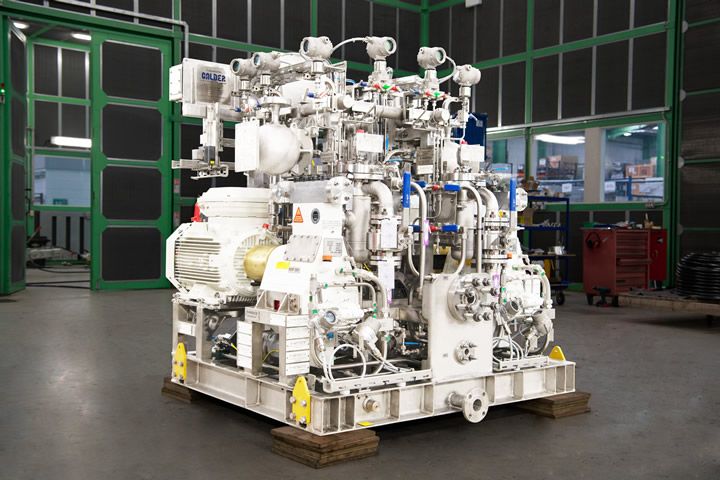EM-POWER EUROPE: DIGITAL TWINS OPTIMIZE GRID OPERATION
Digital twins change the way in which distribution system operators plan, operate and monitor their grids. This technology can enhance efficiency, reduce costs and improve grid stability, which is essential in light of the growing share of renewable energy in the power mix.
Harnessing Rugged Mobile Technology In Renewable Energy Grids
Rugged mobile technology enables utility workers to meet current and future demands more effectively. With powerful processing capabilities, rugged devices allow field technicians to securely send required reports directly to regulatory agencies or customers.
America's Energy Awakening: Why Consumers Are Ready to Power the Future with Renewables and Storage
Powin surveyed 1,000 American consumers 18 or older to discover how prepared they are for the next generation of energy consumption and their preference for addressing rising demand.
Embracing Change: UK Pump Systems Manufacturer Champions Energy Transition Support
Today, the pump systems we design and manufacture for energy transition applications are becoming a large part of our portfolio and we are heavily involved in the development of new technology to aid the race to net zero.
The Role of HVDC in the Energy Transition
HVDC is a transmission system that uses direct current (DC) for the transfer of power over long distances. As remote offshore windfarms and the grid are often far apart, HVDC enables effective transmission due to its uniform current density throughout the line.
Breaking Through Clean Energy Barriers
The U.S. is at a critical point in the energy transition where there's not yet enough renewable generation, yet there's just enough to threaten the economic viability of fossil-fuel-fired generation, leaving a reliability concern for system operators.
ENERGY TRANSITION INVESTMENT HIT $500 BILLION IN 2020 - FOR FIRST TIME
The world invested unprecedented amounts in low-carbon assets last year, from renewables to cleaner transport, energy storage to electric heat
Records 1 to 7 of 7
Featured Product

Vecoplan - Planning and implementation of complete processing plants in refuse derived fuel production
In order to reduce the costs involved in the energy-intensive production of cement, many manufacturers are turning to refuse-derived fuels (RDF), considerably reducing the proportion of expensive primary fuels they would normally use. Solid fuels are being increasingly used - these might be used tyres, waste wood or mixtures of plastics, paper, composite materials and textiles. Vecoplan provides operators of cement plants with proven and robust components for conveying the material and separating iron and impurities, efficient receiving stations, storage systems and, of course, efficient shredders for an output in various qualities.


.jpg)




